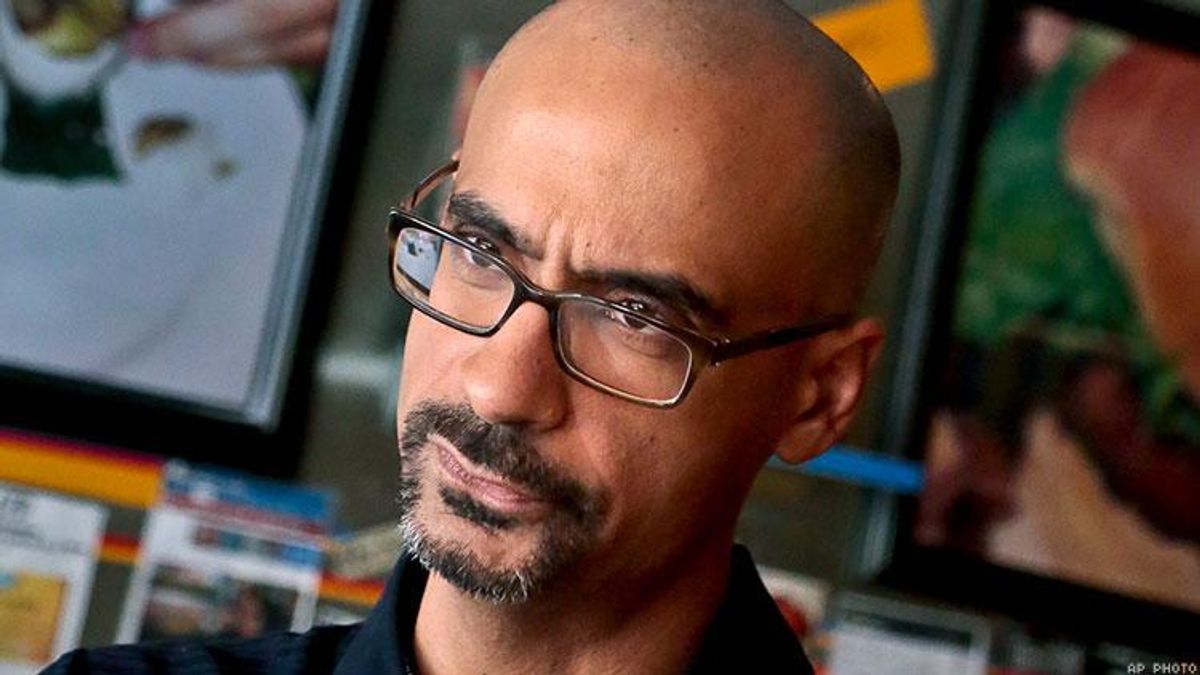Weeks after Pulitzer Prize-winning author Junot Diaz wrote a heartrending story for The New Yorker in which he spoke about having been raped as a child, a barrage of sexual harassment complaints about him flooded social media. Now three editors at the Boston Review, where Diaz is a fiction editor, have announced they're stepping down from the publication in light of the allegations against Diaz, reports the Associated Press.
After reviewing the accusations leveled against Diaz in early May, which were kickstarted when author Zinzi Clemmons (What We Lose) tweeted that he had "forcibly" kissed her, Boston Review editors in chief Deborah Chasman and Joshua Cohen wrote on the publication's website that they determined there wasn't enough evidence for them to remove Diaz from his role.
"The objectionable conduct described in the public reports does not have the kind of severity that animated the #MeToo movement," wrote Chasman and Cohen.
The decision of the editors didn't sit well with three of the publication's poetry editors, Timothy Donnelly, Barbara Fischer, and Stefania Heim, who said they were "dismayed" by the decision to keep Diaz in his position and who all resigned, effective July 1.
"It was painful to leave but we couldn't possibly stay," Donnelly told the AP. "Their position, especially as expressed in their statement, was deeply at odds with our own and with the work we do."
Following along a slippery slope trod by people like Lena Dunham and Jenni Konner, who failed to believe accusers and stood by the accused harassers (only to later apologize), Chasman and Cohen said they'd never had reports of misconduct during Diaz's 15-year tenure with the publication. They also asked female fiction writers who worked with him if they'd heard any accusations against him.
"We heard about a supportive editor and mentor who had opened doors for people," Chasman and Cohen wrote on the website. "Because of his efforts, we have been able to launch some amazing writers, and publish fantastic literary fiction and political essays."
Among those who responded with #MeToo stories to Clemmons's accusation that Diaz kissed her without consent was author Carmen Maria Machado, who said Diaz lost it on her during his book tour for This Is How You Lose Her when she dared question what she perceived as his protagonist's "unhealthy, pathological relationship with women."
"He went off on me for twenty minutes," Machado wrote. "He asked me to back up my claim with evidence. I cited several passages from the book in front of me. He raised his voice, paced, implied I was a prude who didn't know how to read or draw reasonable conclusions from text."
Still another young woman author, Monica Byrne, wrote of her encounter with Diaz:
"I was 32 and my first novel hadn't come out yet. I was invited to a dinner and sat next to him. I disagreed with him on a minor point. He shouted the word 'rape' in my face to prove his. It was completely bizarre, disproportionate, and violent. Every point I made -- ABOUT issues women face in publishing -- he made a point of talking over me, cutting me off, ignoring me to talk to the other (male) sci-fi writer at the table, who played along."
The three editors leaving the Boston Review, are doing so on decent terms, said Donnelly, a 20-year-veteran of the publication.
"We see eye to eye with the editors when it comes to many things. But not this," he said.















































































